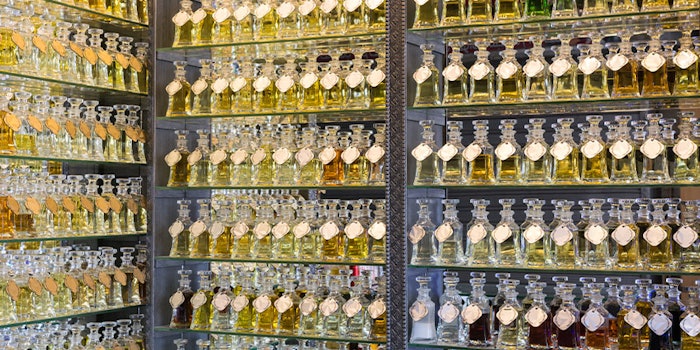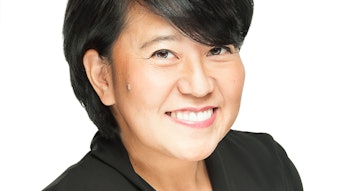
The International Fragrance Association (IFRA), the global body representing fragrance ingredient manufacturers and compounders, has published an update to its flagship fragrance safe use program, the IFRA Standards. The IFRA Standards set maximum use levels on certain fragrances in finished consumer goods products based on scientific research into potential health and environmental effects.
“The IFRA Standards is the industry’s flagship program for the safe use of fragrance ingredients. The Standards set rigorous, comprehensive and global rules based on scientific evidence and consumer insights and are subject to independent oversight,” said IFRA President Martina Bianchini.
The Standards—which also set purity rules or may ban certain ingredients for fragrance applications—are derived from scientific assessments by the Research Institute for Fragrance Materials (RIFM) with independent oversight by the Expert Panel for Fragrance Safety. The latest update represents the most significant change to the Standards in years.
Due to new methodologies and the new procedure to set Standards being developed/implemented for the first time, the 49th Amendment’s preparation has been challenging, according to the organization. The updated Standards are derived from a new safety assessment approach, include rules based on overall consumer use of fragranced products, and feature new and revised product categories. The number of Standards has therefore increased by 25, totaling 216. There are also changes to 91 existing Standards.
“We want consumers to continue to enjoy fragranced products with confidence. The IFRA Standards are our contribution to setting an industry-wide global framework and guidance for every manufacturer and compounder to follow. This boosts transparency while ensuring there is space for creativity and innovation.”
The new Standards for dermal sensitization are based on a new assessment methodology, known as Quantitative Risk Assessment (QRA2), which has been developed through a multi-stakeholder process involving dermatologists, academics, the industry and other stakeholders. The platform for this development was the International Dialogue on the Evaluation of Allergens (IDEA).
The new Standards look at aggregate exposure of fragrance ingredients via different consumer products, using a database of real-life product use and habits that feeds into a statistical model, helping the organization to understand how people use fragrance products in everyday life and to set rules that ensure they can continue to use them safely.
Because new methodologies are being introduced as part of the 49th Amendment—due to QRA2, which has led to new IFRA Standard Categories, among other changes—IFRA has taken decision to grant a prolonged implementation timeline for all Standards within the scope of the 49th Amendment.
IFRA Standards prohibiting or restricting the use of ingredients
Date for Standards entering into force for new creations
- Six months after the completion of the information exchange across the supply chain period (which is seven months after the Notification date). In total, this is 13 months after the date of the Notification (i.e. February 10, 2021).
Date for Standards entering into force for existing creations
- 18 months after the completion of the information exchange across the supply chain period (which is seven months after the Notification date). In total, this is 25 months after the date of the Notification (i.e. February 10, 2022).
IFRA Standards introducing a specification on the use of a fragrance ingredient
Date for Standards entering into force for new creations
- Exceptionally for the 49th Amendment there is no difference of timeline for Specification Standards. Therefore, the timeline for Specification Standards is also 13 months after the date of the letter of Notification (i.e. February 10, 2021).
Date for Standards entering into force for existing creations
- Exceptionally for the 49th Amendment there is no difference of timeline for Specification Standards. Therefore, the timeline for Specification Standards is also 25 months after the date of the letter of Notification (i.e. February 10, 2022).
IFRA will continue to offer education, training and implementation support to members, consumer goods companies and other stakeholders to ensure correct application of the Standards. The updated IFRA Standards are publicly available here. While the Standards are compulsory for IFRA members, non-members are encouraged to follow the Standards as a way of promoting the safe use of fragrance as well as maintaining and enhancing consumer confidence in fragrance.










